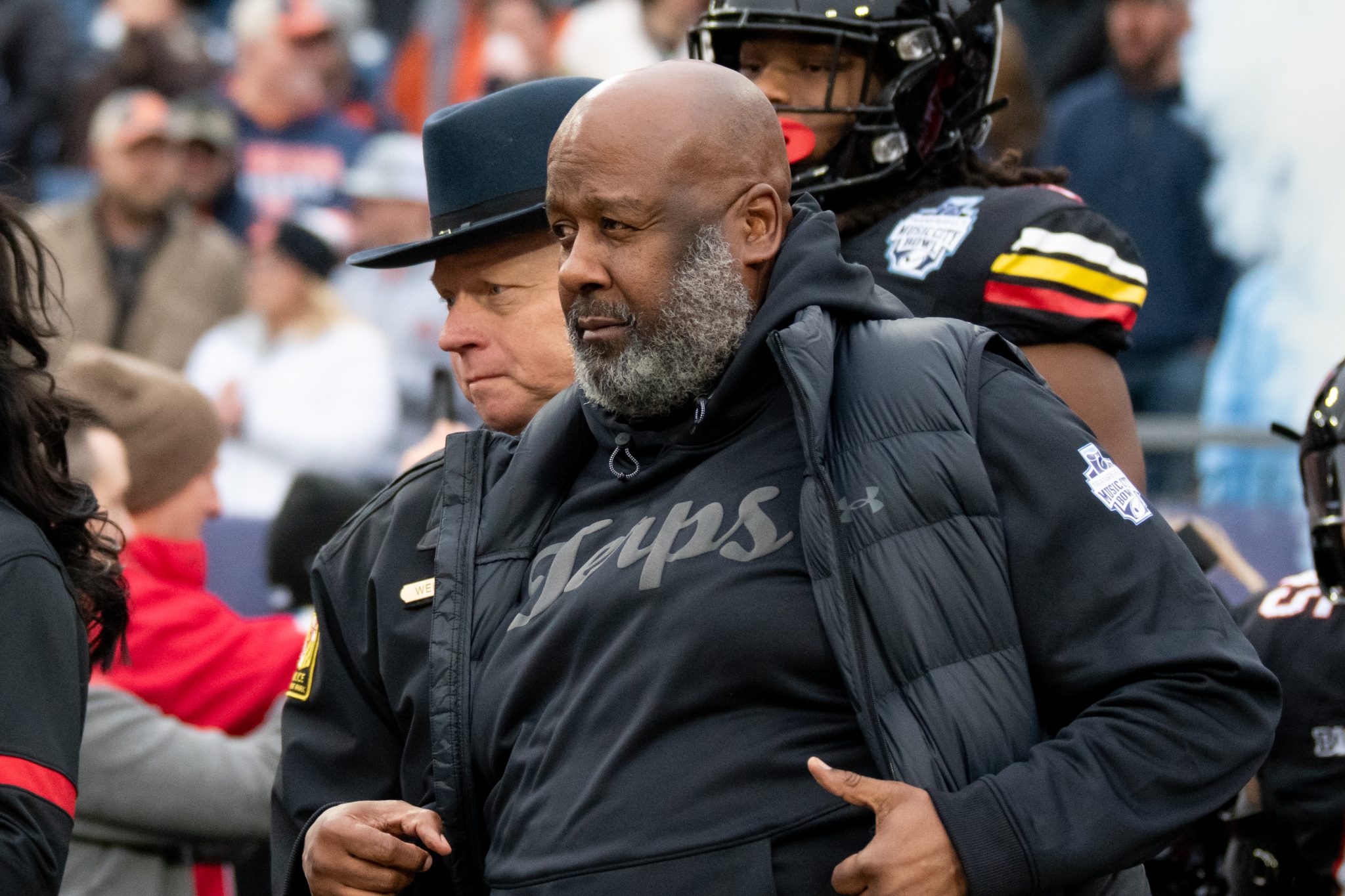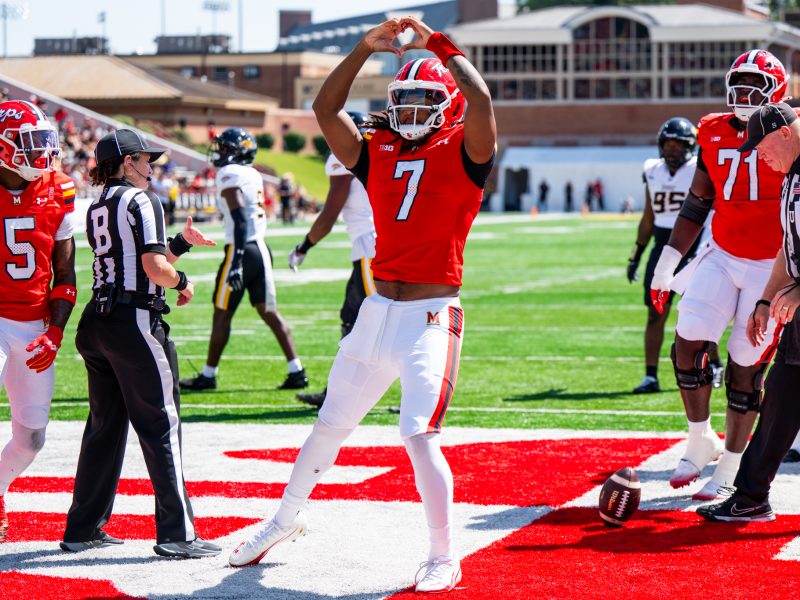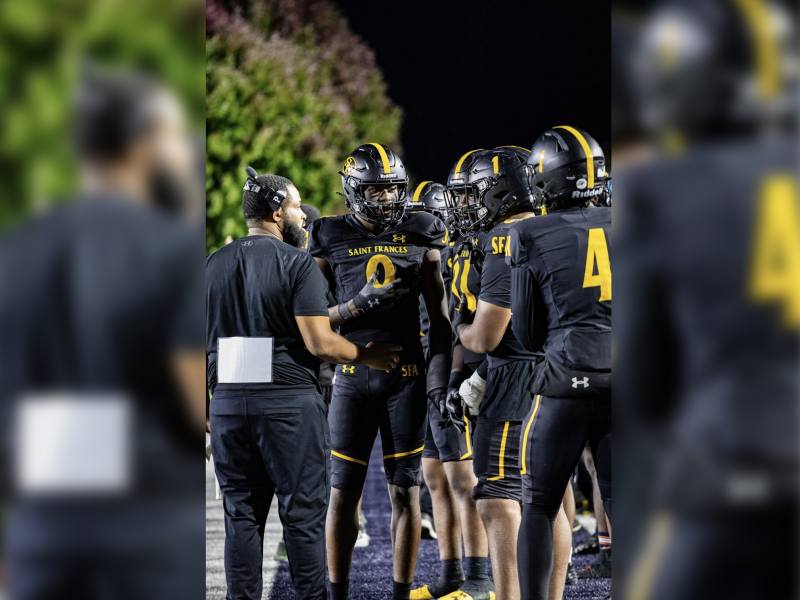When Michael Locksley took control of Maryland football in December 2018, the Terps were fresh off four straight losing seasons. Four head coaches cycled through College Park during that span, including Locksley in a brief interim role.
Maryland routinely sat at the bottom of the Big Ten — failing to win more than three conference games in a season between 2015 and 2018.
But in the five seasons since Locksley’s been hired, he’s turned the program around.
The Terps have steadily improved their winning percentage and won bowl games in three straight seasons for the first time in program history with their victory in the 2023 Music City Bowl.
“Winning is hard to do in this day and age,” Locksley said. “Nobody gives Maryland nothing. We don’t get anything.”
Locksley has turned an uninspiring program into one that can steadily compete in the conference. But the Terps still haven’t notched that “breakthrough win” the coach and program covet. They’re winless in 16 games against ranked Big Ten opponents during Locksley’s tenure.
[Billy Edwards Jr. and Cam Edge showed strengths, inconsistencies in Music City Bowl victory]
Maryland has proven it can challenge the top teams in the conference. It led then-No. 4 Ohio State by seven with about 11 minutes left in the third quarter in Columbus before the Buckeyes scored 27 unanswered points. It trailed by five entering the fourth quarter against eventual national champion Michigan, but failed to score in the final 15 minutes and lost by seven.
In both losses, the Terps’ demise stemmed from their inability to play a complete game.
Offensively, Maryland’s final five drives against Ohio State resulted in an interception, a turnover on downs and three punts. Its last three possessions against Michigan ended in a punt, an interception and a safety. Locksley’s team committed five turnovers across the two games.
Defensively, the Terps allowed the Buckeyes to score on six straight drives and the Wolverines touchdowns in three out of their first six offensive possessions.
Maryland’s late offensive ineptitude, poor turnover margin and defensive inconsistency spoiled two of the program’s chances for a signature win.
“You’ve got to execute in critical situations against really good teams to win games like this,” Locksley said.
Taulia Tagovailoa, the most statistically accomplished quarterback in program history, failed to show up in big moments. He often threw for more interceptions than touchdowns in games against ranked Big Ten opponents.
[Maryland football dominates Auburn in Music City Bowl, 31-13, for third straight bowl win]
Maryland will have to contend with instability at the quarterback position with Tagovailoa gone. They have a trio of options in Billy Edwards Jr., Cam Edge and MJ Morris.
Edwards and Edge split snaps in the Music City Bowl and led the Terps to 24 offensive points. Morris, an NC State transfer, is a former four-star recruit, per 247Sports composite rating. He led his team to a ranked conference win in 2022 — a feat Maryland has yet to accomplish under Locksley — with a three-touchdown, zero-interception performance against then-No. 21 Wake Forest.
Maryland’s defense also showed the talent that helped it occasionally limit the high-powered Ohio State and Michigan attacks. It limited Auburn to just 13 points in the Music City Bowl despite missing two of its most impactful defensive players in Tarheeb Still and Jaishawn Barham — the latter of whom transferred to the Wolverines.
The Terps have the talent on both sides of the ball to break through in the Big Ten. Doing so will require a full four-quarter performance — a task Maryland must complete against the conference’s elites.



